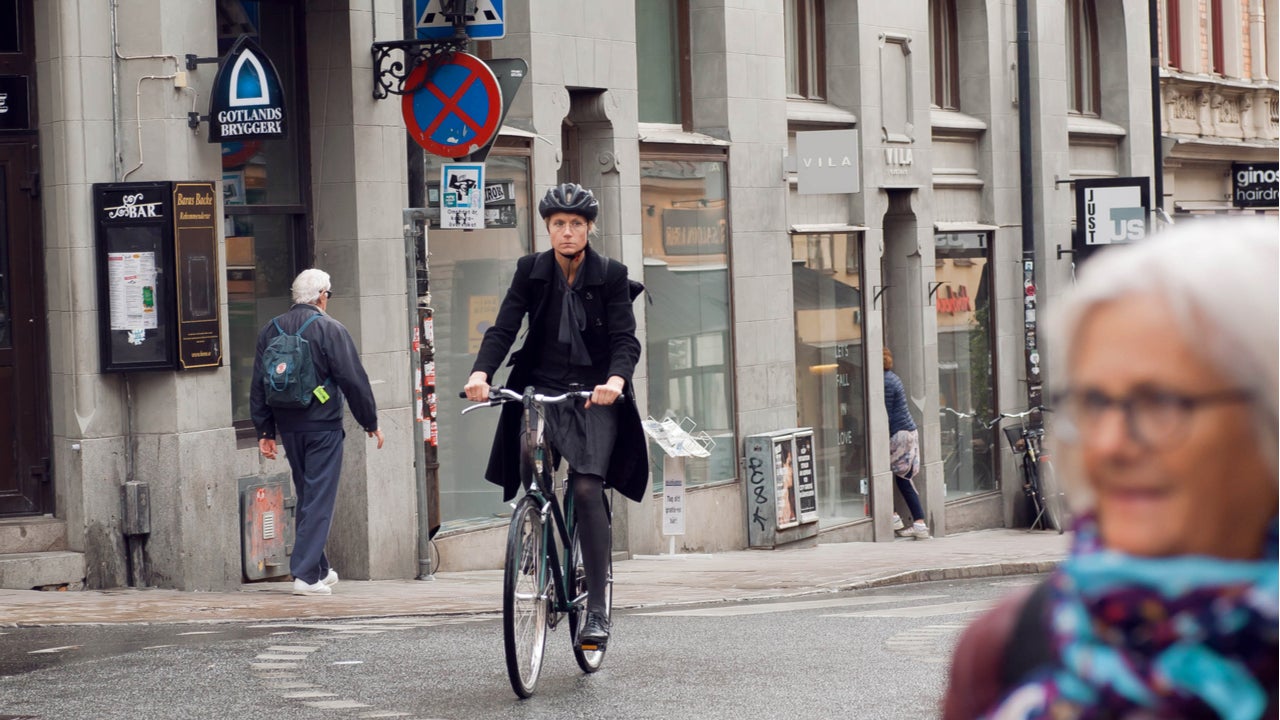
Statistics Sweden data states that the country’s falling life expectancy is directly tied to the coronavirus pandemic. The agency confirms that the fall has become apparent, especially after a clear rise in life expectancy rates for more than a century.
Constantin Gurdgiev
Constantin Gurdgiev, an economist, re-tweeted about how Swedish life expectancy is set to decline for the first time over a century due to the coronavirus pandemic. The country’s statistics agency, Statistics Sweden stated that the average life expectancy of people living in the country has risen between 1900 and 2019. However, the current fall to 80.8 in the year through August for men and 84.4 among women has become clearly visible.

Discover B2B Marketing That Performs
Combine business intelligence and editorial excellence to reach engaged professionals across 36 leading media platforms.
Reports suggest that the country is harder hit by the coronavirus pandemic compared to its Nordic neighbours such as Finland, Norway, and Denmark, and has reported much higher Covid-19 mortality rates. Additionally, Sweden’s old age homes were particularly hard hit by pandemic deaths.
However, authorities have now jumped into action, completely banning social interactions to fight the virus spread, and with argument around not imposing lockdowns becoming more controversial. Sweden has been one of the hardest hit nations in Europe, and also the slowest in containing transmission of the disease.
Swedish life expectancy is set to drop for the first time in more than a century as a direct result of the coronavirus pandemic, the government says https://t.co/oAPltbICZN
— Bloomberg (@business) November 29, 2020
 GlobalData Strategic Intelligence
GlobalData Strategic IntelligenceUS Tariffs are shifting - will you react or anticipate?
Don’t let policy changes catch you off guard. Stay proactive with real-time data and expert analysis.
By GlobalData
John Ashcroft
John Ashcroft, an economist, shared an article on cutting UK overseas aid in the name of Covid fiscal prudence being purely nonsense. Economists believe that Rishi Sunak’s saving of up to $5bn is ridiculously small, excessively bad value for money and also politically a clumsy call.
The article further elucidated that the Chancellor, Rishi Sunak, has warranted a cut in international aid and a public sector pay freeze for millions, except for the National Health Service (NHS) staff and workers earning less than $32,012 every year.
Like-minded Conservative MPs such as Andrew Mitchell, international development secretary under David Cameron, have expressed their disregard to the Chancellor’s decision. Mitchell believes that there should be no debate over international aid, and that Rishi Sunak should have strong reasons to explain why the UK should stop allocating 0.7% of its national income as financial assistance, every year, to poorer nations.
Sunak however, held a different argument that the economic collapse meant that Britain could not afford the financial assistance, and that a fiscal emergency meant prioritising resources and focusing on providing job immunity and public services, the article noted.
Cutting UK overseas aid in the name of Covid fiscal prudence is pure nonsense, In economic terms Rishi Sunak’s saving of up to £4bn is chickenfeed, stupendously bad value for money and hence politically inept … Larry Elliott @guardian i https://t.co/vLAX05dslh
— John Ashcroft (@jkaonline) November 29, 2020
Jonathan Portes
Jonathan Portes, a professor of economics and public policy at King’s College, London, shared an article on the UK government’s approach to tackling Covid-19 risks becoming the worst of all possible worlds. Had the government imposed restrictions in September, it would have saved more lives and money, according to Portes.
In an open letter published by openDemocracy, leading economists Simon Wren-Lewis and Jonathan Portes call for short-term but deep circuit-breaker lockdowns. As households and businesses face tighter restrictions during UK’s second lockdown, economists explain that partial closure of hospitals and other sectors without providing financial support will not be helping in reducing infection rates, death rates, or in protecting the NHS.
Economists also believe that such a move will require the Treasury’s support, especially with regards to extending furlough and busines support schemes introduced in March, and added support to the self-employed and those surviving on Universal Credit.
https://twitter.com/jdportes/status/1332792941958586371



